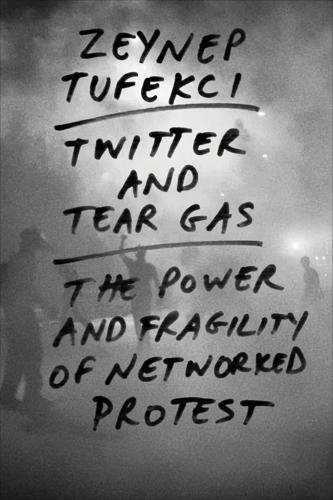
Twitter and Tear Gas: The Power and Fragility of Networked Protest
by
Zeynep Tufekci
Published 14 May 2017
Chapter 6 is an in-depth look into how and why a few platforms—Facebook, Twitter, Google, and YouTube—have emerged so dominant in the networked public sphere, and what their user policies, business models, and algorithms mean for social movements—including a case in which Facebook’s real-name policies almost tripped up the most influential page of the (yet to come) Egyptian revolution, and its algorithms might have smothered emergent social movements, like the Black Lives Matter movement, while promoting feel-good (and worthy) charity drives. Chapter 7 examines the affordances involving identity and reputation—from anonymity to pseudonymity to real-name policies—in online spaces. This chapter includes examples ranging from the striking and disturbing case of child pornographers who find community online to mothers who realize that they can discuss most difficult questions freely in anonymous digital boards, to hoaxes, fabrications, and harassment campaigns online.
…
Anti angrily decried the contrast between his treatment and that of Facebook cofounder Mark Zuckerberg’s puppy, named Beast, which is allowed its own page. Because of Facebook’s real-name policy, to this day, Anti does not have a Facebook page. Even in developed nations where people are not necessarily hiding from the authorities, Facebook’s policies cause problems for social movements. LGBTQ people have been some of the sharpest and most vocal critics of Facebook’s real-name policies. LGBTQ people may go by names that are different from their legal ones as a preference or as a protection against family members who are angry about their sexual orientation or gender identity and who may act abusively toward them.
…
The Facebook page “We Are All Khaled Said” became the focal point for the agitation of hundreds of thousands of Egyptians. Eventually a call for protests on January 25 posted on that page roused people to action that turned into an uprising. However, that course of events was almost tripped up because of Facebook’s “real-name” policy. One of the most consequential decisions that social media platforms make for their users is whether people can use pseudonyms—and easily create multiple accounts—or whether there is a formal (legal “terms-of-service”) requirement that they use their “real” name, however defined. Few platforms require “real names,” but Facebook does.
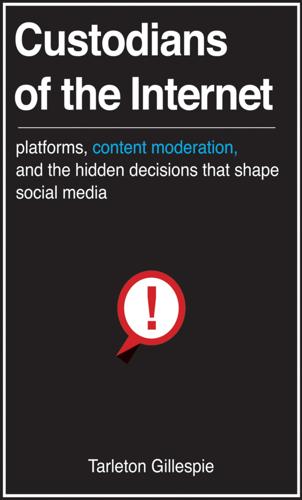
Custodians of the Internet: Platforms, Content Moderation, and the Hidden Decisions That Shape Social Media
by
Tarleton Gillespie
Published 25 Jun 2018
Facebook and LinkedIn’s desire to tether user profiles to real names broke from the logic of the early web, where pseudonymity was imagined to grant people the freedom to be more creative, intimate, flexible, and honest, freeing them from the burden of social markers of race, place, and gender.29 But this freedom, many argued, also made it easier to circulate illicit content and engage in harassing behaviors, without fear of social or legal consequence or the social inhibition of being known.30 Facebook regularly justifies its real-name policy in these terms, as an essential part of its efforts to protect users from harassment, trolling, racism, and misogyny—though in fact these problems plague Facebook anyway, even with a real-name policy in place.31 Some critics have suggested that Facebook in fact needs to require real names for economic reasons: the massive troves of user data it collects are valuable precisely because they map to real people.32 Facebook has faced a series of public challenges for its dogged commitment to its real-name policy. Some feel the requirement imposes an undue burden on those who have reason to shield their identity: victims of past domestic abuse or stalking, those engaged in politically sensitive activities, or whistleblowers and activists who might fear identification or reprisals.
…
Nathan Matias, “The Real Name Fallacy,” Coral Project, January 3, 2017, https://blog.coralproject.net/the-real-name-fallacy/. 31boyd, “The Politics of ‘Real Names.’” 32Lil Miss Hot Mess, “One Year Later, Facebook Still Hasn’t Fixed Its Controversial ‘Real Names’ Policy,” Daily Dot, October 6, 2015, http://www.dailydot.com/opinion/facebook-real-name-policy/. 33Lizze Plaugic, “The Enduring Strangeness of Twitter Parody Accounts,” Verge, March 14, 2016, https://www.theverge.com/2016/3/14/11208538/twitter-parody-accounts-ted-ron-burgundy. Haimson and Hoffmann, “Constructing and Enforcing ‘Authentic’ Identity Online.”
…
When people stand behind their opinions and actions with their authentic name and reputation, our community is more accountable. If we discover that you have multiple personal profiles, we may ask you to close the additional profiles. Facebook Some platforms require users to participate using their real names. Facebook and LinkedIn have long insisted on a “real name” policy; Google+ did for its first few years, until relaxing the rule in 2014. LinkedIn also prohibits inaccurate information in user profiles.28 In addition, platforms that facilitate the exchange of goods, money, or services often require proof of identity as part of a credit card or other payment transaction architecture, though some (like Etsy) allow that information to be obscured behind a pseudonymous profile that need not match the real name and fiduciary identity made known to the platform.
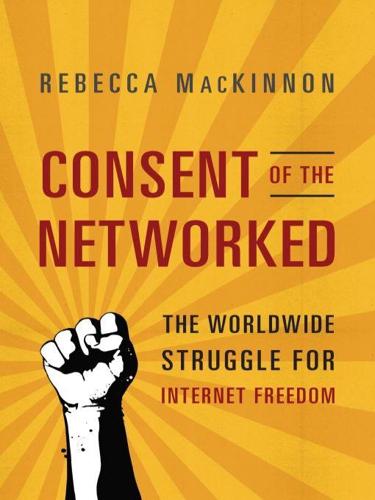
Consent of the Networked: The Worldwide Struggle for Internet Freedom
by
Rebecca MacKinnon
Published 31 Jan 2012
After holding a number of conversations with activists and human rights groups, in mid-2011 the company rolled out an easy-to-use appeals process for people to contest the deactivation of their accounts, a process which until then had not existed for people without personal connections to Facebook staff. Facebook also developed a new “community standards” page to explain its terms of service in a simple and accessible way. Yet while that page as well as the official legally binding Terms of Service page were translated into Arabic, as of mid-2011 those key documents explaining Facebook’s real-name policy and other “rules” whose violation could trigger account deactivation and suspension had yet to be translated into the languages of a number of other vulnerable user groups, such as Chinese and Farsi. GOOGLE GOVERNANCE After a year in self-imposed exile, Lokman Tsui decided that his departure had done nothing to help change Facebook and rejoined.
…
Many of Google Plus’s earliest members also rejoiced at what seemed to be a more flexible approach to identity compared to Facebook’s, citing its official “community standards” page, which said, “To help fight spam and prevent fake profiles, use the name your friends, family or co-workers usually call you.” The Chinese blogger who publishes widely in English under the name Michael Anti—not actually his real Chinese name—happily joined Google Plus after having been kicked off Facebook for violating its real-name policy in late 2010. Many others around the world who have professional reputations associated with long-standing pseudonyms instead of their real names signed up for Google Plus with their pseudonyms. These included an Iranian cyber-dissident known widely in the Iranian blogosphere as Vahid Online, as well as an engineer and former Google employee whose real name is Kirrily Robert but who is much better known online and professionally by her user name, Skud.
…
She launched the website my.nameis.me, dedicated to discussing questions of identity and why pseudonymity and anonymity have a necessary place in a free and democratic society. Technology gurus and activists from around the world weighed in, contributing statements and testimonials. Though few mainstream news organizations had written about the human rights implications of Facebook’s real-name policy, the torrent of commentary flowing at the same time from many influential technologists—coming right on the heels of Google Plus’s launch, which was in itself a major news story—brought the public debate about online identity into the mainstream in a way that had not previously been the case.

Abolish Silicon Valley: How to Liberate Technology From Capitalism
by
Wendy Liu
Published 22 Mar 2020
See https://googleblog.blogspot.com/2013/03/a-second-spring-of-cleaning.html. 5 In July of 2014, Google announced that it would be fully backtracking on their Real Names policy, no longer imposing restrictions on the names that users could choose for their Google+ accounts. See “Google reverses ‘real names’ policy, apologizes” by Violet Blue for ZDNet, published July 15, 2014, at https://www.zdnet.com/article/google-reverses-real-names-policy-apologizes/. 6 Fortune has listed Google as the #1 best company to work for in the US for every year between 2012 and 2017. See https://fortune.com/best-companies/2017/google/. 7 See https://www.vogue.com/article/hail-to-the-chief-yahoos-marissa-mayer.
…
Occasionally, however, I noticed spates of incipient workplace activism in the form of employee backlash over product changes. A few months before I started, Google announced that it would be shutting down Google Reader in the face of declining usage, and the ensuing internal uproar even had some employees volunteering to maintain Reader themselves.4 And internal criticism of Google Plus’ proposed Real Names policy — which would require users to publicly display their legal names across Google platforms — was fierce enough that the company would later backtrack.5 Other than that, though, the work environment seemed fairly idyllic. I rarely got the sense of any separation between the company and its employees: I never heard of disputes over pay or benefits, and the swelling tide of sexual harassment allegations didn’t reach me until after I was gone.
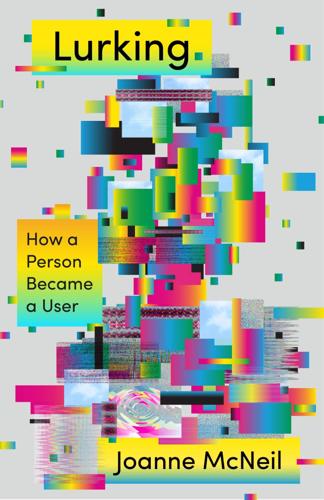
Lurking: How a Person Became a User
by
Joanne McNeil
Published 25 Feb 2020
And Myspace is the new Woodstock,” the electronic pop musician Kyunchi told Paper magazine in 2019. But there isn’t quite the same nostalgia for Friendster, and part of that could be attributed to Jonathan Abrams’s recent attempts to retrofit the history of his company so it neatly appears first in a lineage leading up to Facebook’s “authenticity” and oppressive real-names policy. Friendster failed when it tried to classify its users as real or fake, or visible or anonymous, before users were ready. Even if the desire for “real identity” had been present back then, it meant very little in the mid-aughts, without status updates, notifications, feeds, and an omnipresence of information buttressing a name as a through line of information about a person, rather than just another detail like favorite film or height.
…
Maybe someone did die! What right did Facebook have to rearrange a digital world for someone without their consent? Later that year, Facebook’s reputation continued to sink, culminating in a long-drawn-out standoff with drag queens, who were kicked off the service due to its stringent and restrictive “real names” policy. The policy also alienated trans users, Native Americans, and other users with names that were not expressly white and cis normative. These users had to go through intense check-ins with Facebook customer service, sending in passport photos and other official documents, an absurd overreach from something that was not a government body, but a private internet company run by a dude in a hoodie.
…
These users had to go through intense check-ins with Facebook customer service, sending in passport photos and other official documents, an absurd overreach from something that was not a government body, but a private internet company run by a dude in a hoodie. Notice which communities were singled out when the platform cracked down on “inauthenticity.” Facebook had no similar hard line against the widespread practice of law enforcement creating actual fake profiles as a tactic to infiltrate activist communities like Black Lives Matter. The real names policy was a tool for harassment, but this harassment was structural, too. White supremacist groups flagged Native Americans and others for deletion as a form of abuse, but the platform’s indifference bore out the consequences of this harassment. “Facebook workers—particularly those who live outside of the United States and Canada—may not be familiar with Native naming conventions.
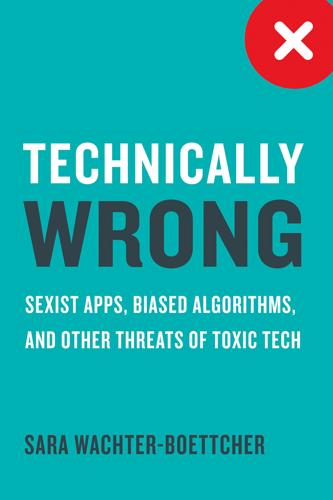
Technically Wrong: Sexist Apps, Biased Algorithms, and Other Threats of Toxic Tech
by
Sara Wachter-Boettcher
Published 9 Oct 2017
Unlike, say, Twitter, which allows you to select whatever username you want, Facebook requires everyone to use their real name. The official line from Facebook is that this policy increases users’ safety because you always know who you’re connecting with. And it’s true, in some ways; for example, the anonymous trolls who threaten women on Twitter are mostly absent from Facebook. But the real-name policy has also received intense criticism from groups like the LGBTQ community, political refugees, people who’ve been victims of stalking and are seeking safety from abusers, and many others who argue that using their legal names on Facebook would either compromise their safety or prevent them from expressing their authentic identity.
…
If you’ve spent any time reading about online harassment, it won’t surprise you to know that many people misused the reporting feature in order to abuse others—flagging, say, hundreds of drag queens, or all the people involved in a Native protest movement, as fake names in a single day. Suddenly, Facebook’s assertion that its real-name policy prevents abuse didn’t feel quite so believable. To Facebook’s credit, it did recognize that this process was a bit too easy for users reporting names, and too cumbersome for those on the other end of the reports. In December 2015, it rolled out updates designed to take some of the burden off people accused of using a fake name, and put more on those who make a report.
…
As a result, it’s more beholden to investors than to the people who use the product. And while investors hate losing engagement, they hate headlines that tell the world the company they’ve funded is a home for racial profiling even more. Same with Facebook: the site walked back (though, of course, did not remove) its real-name policy only when a large contingent of users revolted and turned the story into a PR nightmare. That’s why we all need to pay a lot closer attention to the minutiae we encounter online—the form fields and menus we tend to gloss over so quickly. Because if we want tech companies to be more accountable, we need to be able to identify and articulate what’s going wrong, and put pressure on them to change (or on government to regulate their actions).
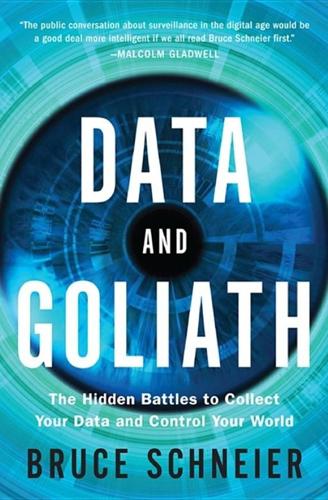
Data and Goliath: The Hidden Battles to Collect Your Data and Control Your World
by
Bruce Schneier
Published 2 Mar 2015
Facebook pretty much demands real names: Facebook has been reconsidering the policy after being confronted by users who are potentially endangered by it. Facebook (2014), “What names are allowed on Facebook?” https://www.facebook.com/help/112146705538576. Reed Albergotti (2 Oct 2014), “Facebook changes real-name policy after uproar from drag queens,” Wall Street Journal, http://online.wsj.com/articles/facebook-changes-real-name-policy-after-uproar-from-drag-queens-1412223040. It quickly became clear: People’s willingness to pay has changed somewhat. Lots of us are now used to paying small amounts, or even large amounts over time, for smartphone apps, but the surveillance aspect of Internet business has remained.
…
Cookies are inherently anonymous, but companies are increasingly able to correlate them with other information that positively identifies us. You identify yourself willingly to lots of Internet services. Often you do this with only a username, but increasingly usernames can be tied to your real name. Google tried to compel this with its “real name policy,” which mandated that users register for Google Plus with their legal names, until it rescinded that policy in 2014. Facebook pretty much demands real names. Anytime you use your credit card number to buy something, your real identity is tied to any cookies set by companies involved in that transaction.
…
W., 230 Bush, George W., 230 business models, surveillance-based, 50, 56, 113–14, 206 Buzzfeed, 28–29 cable companies, surveillance by, 47–48 CALEA (Communications Assistance for Law Enforcement Act; 1994), 83, 120, 165 need for repeal of, 182 Callahan, Mary Ellen, 162–63 Cameron, David, 222, 228 Canada, in international intelligence partnerships, 76 Caproni, Valerie, 83 Carnegie Mellon University, 41 Carter, Jimmy, 230 cash registers, as computers, 14 cell phone metadata: NSA collection of, 20–21, 36, 37, 62, 138, 339 Stanford University experiment on, 21–22 cell phones: GPS-enabled, 3, 14 multiple functions of, 46 NSA’s remote activation of, 30 as surveillance devices, 1–3, 14, 28, 39, 46–47, 62, 100, 216–17, 219, 339 wiretapping of, 148 censorship, 94–95, 106–7, 187–88 self-, 95, 96 Census Bureau, US, 197 Central Intelligence Agency (CIA), 67 in domestic surveillance operations, 104 Senate Intelligence Committee hacked by, 102 Chambers, John, 122 Charter of Fundamental Rights of the European Union, 232, 364 chat services, 13, 83, 119, 226 government surveillance of, 29, 62, 81 checks and balances: oversight and, 175 secrecy and, 100 Chicago Police Department, 160 China: censorship in, 94, 95, 150–51, 187, 237 cyberattacks from, 42, 73, 132, 142, 148, 149, 180 50 Cent Party in, 114 mass surveillance by, 70, 86, 140, 209 Uighur terrorists in, 219, 287 ChoicePoint, 79, 116 Christie, Chris, 102 Church committee, 176 Cisco, 85, 122 Clapper, James, 129, 130, 336 Clinton, Hillary, 101, 106 Clinton administration, 120 Clipper Chip, 120–21 cloud computing, 5, 59, 60 consumer rights and, 60, 221 government surveillance and, 122 incriminating materials and, 59, 272 CNET, 125 Cobham, 3, 244 Code of Fair Information Practices (1973), 194 Code Pink, 104 Cohen, Jared, 4 COINTELPRO, 103 Cold War, 63, 71, 75, 207, 229 “collect,” NSA’s use of term, 129 Comcast, 358 as information middleman, 57 surveillance by, 48–49 commons, as lacking on Internet, 188–89 communication: computers as devices for, 13–14 ephemeral vs. recorded, 127–29 Communications Assistance for Law Enforcement Act see CALEA Communications Security Establishment Canada (CSEC), 40–41 Communists, Communism, 92–93 fall of, 63 complexity, as enemy of security, 141 Comprehensive National Cybersecurity Initiative, 69 computers, computing: cash registers as, 14 as communication devices, 13–14 cost of, 24 data as by-product of, 3–4, 5, 13–19 increasing power of, 35 smartphones as, 14 see also electronic devices Computer Security Act (1987), 187 COMSEC (communications security), 164–65 Congress, US, 237 NSA oversight by, 172–76 privacy laws and, 198–99 secrecy and, 100 “connect-the-dots” metaphor, 136, 139, 322 consent, as lacking in mass surveillance, 5, 20, 51 Consent of the Networked (MacKinnon), 210, 212 Constitution, US: Bill of Rights of, 210 First Amendment of, 189 Fourth Amendment of, 67, 156, 170 warrant process and, 92, 179, 184 Consumer Privacy Bill of Rights (proposed), 201, 202 consumer rights: cloud computing and, 30 data collection and, 192–93, 200–203, 211 convenience, surveillance exchanged for, 4, 49, 51, 58–59, 60–61 cookies, 47–48, 49 correlation of, 49 correlation, of data sets, 40–45, 49, 133, 263–64 Counterintelligence Field Activity, 69, 104 counterterrorism: excessive secrecy in, 171 as FBI mission, 184, 186 fear and, 222, 226, 227–30 mass surveillance as ineffective tool in, 137–40, 228 as NSA mission, 63, 65–66, 184, 222 NSA’s claimed successes in, 325 Creative Cloud, 60 credit bureaus, as data brokers, 52 credit card companies, data collected by, 14, 23–24 credit card fraud, 116, 313 data mining and, 136–37 credit cards, RFID chips on, 29 credit scores, 112–13, 159, 196 Credit Suisse, 35–36 CREDO Mobile, 207 Cryptocat, 215 cryptography, see encryption cultural change: systemic imperfection and, 163–64 transparency and, 161 Customer Relations Management (CRM), 51–52 customer scores, 110–11 Cyber Command, US, 75, 146, 180–81, 186, 187 cybercrime, increasing scale of, 116–19, 142 cyber sovereignty, 187–88 cyberwarfare, 74–75, 81, 132, 220 arms race in, 180–81 attack vs. defense in, 140–43 collateral damage from, 150–51 military role in, 185–86 NIST’s proposed defensive role in, 186–87 see also Cyber Command, US Dalai Lama, 72 Daniel, Jon, 101 data: analysis of, see data mining as by-product of computing, 3–4, 5, 13–19 historical, 35–37 increasing amount of, 18–19 see also metadata data broker industry, 2, 5, 41, 48, 51–53, 79, 234 correction of errors in, 269 customer scores in, 110–11 lack of consent in, 5, 51 data collection, 234 accountability and, 193, 196, 197–99 benefits of, 8, 190 fiduciary responsibility and, 204–5 government regulation and, 197–99 harms from, 8 health and, 16 limits on, 191, 192, 199–200, 202, 206 NSA definition of, 129, 320 opt-in vs. opt-out consent in, 198 respect for context in, 201 rights of individuals in, 192–93, 200–203, 211, 232 salience of, 203–4 security safeguards in, 192, 193–95, 202, 211 from social networking sites, 200–201 specification of purpose in, 192 see also mass surveillance Dataium, 195–96 data mining, 33–45 adversarial relationships and, 138–39 algorithmic-based, 129–31, 136–37, 159, 196 anonymity and, 42–45 correlation of data sets in, 40–45, 49, 133 credit card fraud and, 136–37 of historical data, 35–37 inferences from, see inferences, from data mining limits on uses of, 191, 192, 195–97, 206 personalized advertising and, 33, 35, 38 political campaigns and, 33, 54 quality assurance and, 34, 54, 136–37, 192, 194, 202 relationship mapping in, 37–38 security threats and, 136–40 tax fraud and, 137 data storage: capacity for, 18–19 cloud-based, 5, 59 limits on, 191, 199–200, 206 low cost of, 5, 18, 24, 144, 206 “save everything” model of, 34 Datensparsamkeit, 200 de-anonymizing, by correlation of data sets, 43–44, 263–64 Declaration of the Rights of Man and of the Citizen, 210 Defense Department, US: Counterintelligence Field Activity of, 69, 104 Cyber Command of, 75 domestic surveillance by, 69, 184 Defentek, 3 delete, right to, 201–2 democracy: government surveillance and, 6, 95, 97–99, 161–62, 172–73 whistleblowers as essential to, 178 demographic information, data brokers and, 52 denial-of-service attacks, 75 Department of Homeland Security, US, 27, 162–63, 295–96 deportation, discrimination and, 93 DigiNotar, hacking of, 71–72 direct marketing, 52 discrimination: corporate surveillance and, 109–13 government surveillance and, 4, 6, 93, 103–4 in pricing, 109–10 DNA sequencing, 16 de-anonymizing of, 44 DNS injection, 150–51 Doctorow, Cory, 217 “Do Not Track” debate, 80 Do Not Track law, California, 233 DoNotTrackMe, 49 “Don’t Ask Don’t Tell” policy, 197 DoubleClick, 48 Drake, Thomas, 101 Dread Pirate Roberts (Ross Ulbricht), 105 drone helicopters, 25, 29 micro-, 253 drone strikes, mass surveillance and, 94 Drug Enforcement Administration (DEA), 104, 105 Dubai, 27, 43 DuckDuckGo, 124 due process, 168, 184 Duffy, Tim, 227 East Germany, 23 eBay, 57–58 Economist, 91 EDGEHILL, 85 education, collection of data and, 8 Eisenhower, Dwight D., 230 Elbit Systems, 81 Elcomsoft, 150 electronic devices, vendor control of, 59–60 Ello, 124 Ellsberg, Daniel, 101 e-mail, 119, 226 local vs. cloud storage of, 31 Emanuel, Rahm, 234 encryption, 85–86, 224, 344 backdoors and, 86, 120–21, 123, 147–48, 169, 182, 314 business competitiveness and, 119–24 increased corporate use of, 208, 224 individual use of, 215 key length in, 143 NIST and, 186–87 NSA and, 144, 186 NSA undermining of standards for, 148–49 secrecy and, 171 value of, 143–44 Engel, Tobias, 3 Environmental Protection Agency (EPA), pollution regulation by, 194–95 ephemerality, of communication, 127–29 Epsilon, 41 Equifax, 53 error rates, in data mining, 34, 54, 136–37, 269 espionage, 63, 73, 74, 76, 158 surveillance vs., 170, 183–84 Espionage Act (1917), 101 Estonia, cyberattacks on, 75, 132 Ethiopia, 73 European Charter, 169 European Court of Justice, 202, 222 European Parliament, 76 European Union (EU), 195, 200, 202, 226, 238 Charter of Fundamental Rights of, 232, 364 Data Protection Directive of, 19, 79, 80, 159, 191, 209 data retention rules in, 222 Exact Data, 42 executive branch: abuses of power by, 234–35 secrecy of, 100, 170 Executive Order 12333, 65, 173 Facebook, 58, 59, 93, 198 customer scores and, 111 data collection by, 19, 31, 41, 123, 200, 201, 204 as information middleman, 57 manipulation of posts on, 115 paid placements on, 114 real name policy of, 49 Facebook, surveillance by: data-based inferences of, 34, 258 Like button and, 48 relationship mapping by, 37–38 tagged photo database of, 41 face recognition, automatic, 27, 29, 31, 41, 211 fair information practices, 194, 211 fair lending laws, 196 false positives, 137, 138, 140, 323–24 Farrell, Henry, 60 FASCIA, 3 fatalism, mass surveillance and, 224–25 fear: government surveillance and, 4, 7, 95–97, 135, 156–57, 182–83, 222, 226, 227–30 media and, 229 politicians and, 222, 228 privacy trumped by, 228 social norms and, 227–30 Federal Bureau of Investigation (FBI): CALEA and, 83, 120 COINTELPRO program of, 103 cost to business of surveillance by, 121–22 counterterrorism as mission of, 184, 186 data mining by, 42 GPS tracking by, 26, 95 historical data stored by, 36 illegal spying by, 175 IMSI-catchers used by, 165 legitimate surveillance by, 184 Muslim Americans surveilled by, 103 PATRIOT Act and, 173–74 phone company databases demanded by, 27, 67 surveillance of all communications as goal of, 83 warrantless surveillance by, 67–68, 209 wiretapping by, 24, 27, 83, 171 Federal Communications Commission (FCC), 198 Federal Trade Commission, US (FTC), 46–47, 53, 117, 198 Feinstein, Diane, 172 Ferguson, Mo., 160 fiduciary responsibility, data collection and, 204–5 50 Cent Party, 114 FileVault, 215 filter bubble, 114–15 FinFisher, 81 First Unitarian Church of Los Angeles, 91 FISA (Foreign Intelligence Surveillance Act; 1978), 273 FISA Amendments Act (2008), 171, 273, 275–76 Section 702 of, 65–66, 173, 174–75, 261 FISA Court, 122, 171 NSA misrepresentations to, 172, 337 secret warrants of, 174, 175–76, 177 transparency needed in, 177 fishing expeditions, 92, 93 Fitbit, 16, 112 Five Eyes, 76 Flame, 72 FlashBlock, 49 flash cookies, 49 Ford Motor Company, GPS data collected by, 29 Foreign Intelligence Surveillance Act (FISA; 1978), 273 see also FISA Amendments Act Forrester Research, 122 Fortinet, 82 Fox-IT, 72 France, government surveillance in, 79 France Télécom, 79 free association, government surveillance and, 2, 39, 96 freedom, see liberty Freeh, Louis, 314 free services: overvaluing of, 50 surveillance exchanged for, 4, 49–51, 58–59, 60–61, 226, 235 free speech: as constitutional right, 189, 344 government surveillance and, 6, 94–95, 96, 97–99 Internet and, 189 frequent flyer miles, 219 Froomkin, Michael, 198 FTC, see Federal Trade Commission, US fusion centers, 69, 104 gag orders, 100, 122 Gamma Group, 81 Gandy, Oscar, 111 Gates, Bill, 128 gay rights, 97 GCHQ, see Government Communications Headquarters Geer, Dan, 205 genetic data, 36 geofencing, 39–40 geopolitical conflicts, and need for surveillance, 219–20 Georgia, Republic of, cyberattacks on, 75 Germany: Internet control and, 188 NSA surveillance of, 76, 77, 122–23, 151, 160–61, 183, 184 surveillance of citizens by, 350 US relations with, 151, 234 Ghafoor, Asim, 103 GhostNet, 72 Gill, Faisal, 103 Gmail, 31, 38, 50, 58, 219 context-sensitive advertising in, 129–30, 142–43 encryption of, 215, 216 government surveillance of, 62, 83, 148 GoldenShores Technologies, 46–47 Goldsmith, Jack, 165, 228 Google, 15, 27, 44, 48, 54, 221, 235, 272 customer loyalty to, 58 data mining by, 38 data storage capacity of, 18 government demands for data from, 208 impermissible search ad policy of, 55 increased encryption by, 208 as information middleman, 57 linked data sets of, 50 NSA hacking of, 85, 208 PageRank algorithm of, 196 paid search results on, 113–14 search data collected by, 22–23, 31, 123, 202 transparency reports of, 207 see also Gmail Google Analytics, 31, 48, 233 Google Calendar, 58 Google Docs, 58 Google Glass, 16, 27, 41 Google Plus, 50 real name policy of, 49 surveillance by, 48 Google stalking, 230 Gore, Al, 53 government: checks and balances in, 100, 175 surveillance by, see mass surveillance, government Government Accountability Office, 30 Government Communications Headquarters (GCHQ): cyberattacks by, 149 encryption programs and, 85 location data used by, 3 mass surveillance by, 69, 79, 175, 182, 234 government databases, hacking of, 73, 117, 313 GPS: automobile companies’ use of, 29–30 FBI use of, 26, 95 police use of, 26 in smart phones, 3, 14 Grayson, Alan, 172 Great Firewall (Golden Shield), 94, 95, 150–51, 187, 237 Greece, wiretapping of government cell phones in, 148 greenhouse gas emissions, 17 Greenwald, Glenn, 20 Grindr, 259 Guardian, Snowden documents published by, 20, 67, 149 habeas corpus, 229 hackers, hacking, 42–43, 71–74, 216, 313 of government databases, 73, 117, 313 by NSA, 85 privately-made technology for, 73, 81 see also cyberwarfare Hacking Team, 73, 81, 149–50 HAPPYFOOT, 3 Harris Corporation, 68 Harris Poll, 96 Hayden, Michael, 23, 147, 162 health: effect of constant surveillance on, 127 mass surveillance and, 16, 41–42 healthcare data, privacy of, 193 HelloSpy, 3, 245 Hewlett-Packard, 112 Hill, Raquel, 44 hindsight bias, 322 Hobbes, Thomas, 210 Home Depot, 110, 116 homosexuality, 97 Hoover, J.
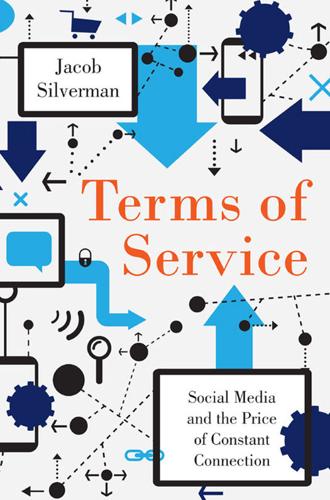
Terms of Service: Social Media and the Price of Constant Connection
by
Jacob Silverman
Published 17 Mar 2015
Huffington Post. July 27, 2011. huffingtonpost.com/2011/07/27/randi-zuckerberg-anonymity-online_n_910892.html. 159 “people behave a lot better”: ibid. 159 malicious comments: Gregory Fernstein. “Surprisingly Good Evidence That Real Name Policies Fail to Improve Comments.” TechCrunch. July 29, 2012. techcrunch.com/2012/07/29/surprisingly-good-evidence-that-real-name-policies-fail-to-improve-comments. 160 Facebook’s PR firm: Dan Lyons. “Facebook Busted in Clumsy Smear on Google.” Daily Beast. May 11, 2011. thedailybeast.com/articles/2011/05/12/facebook-busted-in-clumsy-smear-attempt-on-google.html. 162 Christopher Poole on identity: Aleks Krotoski.
…
Such a policy can easily lead to measures to chip away at users’ freedom of expression or to coerce them into certain actions. (Facebook’s history of secret experimentation on users, along with its interest in boosting ad click-through rates, suggests that they are already deeply involved in the behavior modification business.) And there’s little evidence that these sorts of real-name policies accomplish much. In the last decade, South Korea experimented with requiring real names to post comments on many Web sites, eventually requiring them on all sites that received more than 100,000 visitors per year. But so-called malicious comments only decreased by less than 1 percent, while people who posted frequent harsh comments appeared undeterred.
…
Facebook—itself notorious for its fickle and confusing privacy policies, with each frequent change inevitably exposing more user information—was secretly using a PR firm as a front to drum up criticism of a competing company’s privacy practices. Add to that Facebook’s creation of what have been called “dark profiles” for people who have never signed up for the service, along with its habit of retaining information that users believed they had deleted, and one gets the sense that the promulgation of a real-names policy is but another element to gather as much information as possible, to make us transparent first and foremost to Facebook and its advertising platform. A SINGLE LOG-IN Not long ago, Web users had more options about how they conducted themselves online. Chat rooms, message boards, and online games invited us to employ whatever name we wanted.
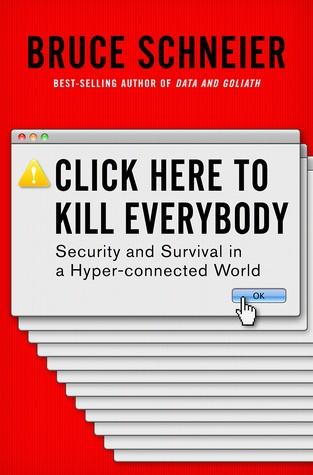
Click Here to Kill Everybody: Security and Survival in a Hyper-Connected World
by
Bruce Schneier
Published 3 Sep 2018
Doowon Kim, Bum Jun Kwon, and Tudor Dumitras (1 Nov 2017), “Certified malware: Measuring breaches of trust in the Windows code-signing PKI,” ACM Conference on Computer and Communications Security (ACM CCS ’17), http://www.umiacs.umd.edu/~tdumitra/papers/CCS-2017.pdf. 51Facebook has a “real name” policy: Amanda Holpuch (15 Dec 2015), “Facebook adjusts controversial ‘real name’ policy in wake of criticism,” Guardian, https://www.theguardian.com/us-news/2015/dec/15/facebook-change-controversial-real-name-policy. 51Google requires a phone number: Eric Griffith (3 Dec 2017), “How to create an anonymous email account,” PC Magazine, https://www.pcmag.com/article2/0,2817,2476288,00.asp. 52He was found by a dogged FBI agent: Nate Anderson and Cyrus Farivar (3 Oct 2013), “How the feds took down the Dread Pirate Roberts,” Ars Technica, https://arstechnica.com/tech-policy/2013/10/how-the-feds-took-down-the-dread-pirate-roberts. 52Pedophiles have been arrested: Joseph Cox (15 Jun 2016), “How the feds use Photo-shop to track down pedophiles,” Vice Motherboard, https://motherboard.vice.com/en_us/article/8q8594/enhance-enhance-enhance-how-the-feds-use-photoshop-to-track-down-pedophiles.
…
With a bank, it is a solid identification based on a face-to-face interaction in a branch office. With a credit card purchase, it’s a weaker authentication based on a person knowing a bunch of personal information. Sometimes identification is tied to a phone number, an address, a national ID card, or a driver’s license. Facebook has a “real name” policy: people are supposed to use their real names, but there isn’t any verification unless there’s a dispute of some sort. Google requires a phone number to set up a Gmail account—although people can use an anonymous “burner” phone. Other times, identification isn’t based on anything. My Reddit account is nothing more than a unique username; the only identification is to itself and all the posts I’ve made under that username.
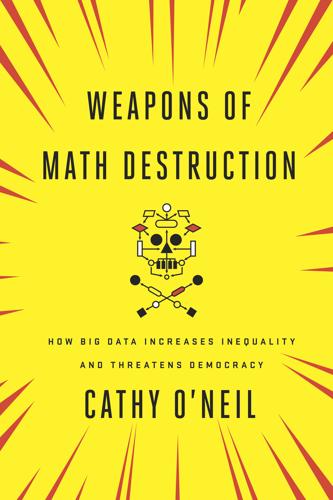
Weapons of Math Destruction: How Big Data Increases Inequality and Threatens Democracy
by
Cathy O'Neil
Published 5 Sep 2016
Auditors face resistance, however, often from the web giants, which are the closest thing we have to information utilities. Google, for example, has prohibited researchers from creating scores of fake profiles in order to map the biases of the search engine.*2 Facebook, too. The social network’s rigorous policy to tie users to their real names severely limits the research outsiders can carry out there. The real-name policy is admirable in many ways, not least because it pushes users to be accountable for the messages they post. But Facebook also must be accountable to all of us—which means opening its platform to more data auditors. The government, of course, has a powerful regulatory role to play, just as it did when confronted with the excesses and tragedies of the first industrial revolution.
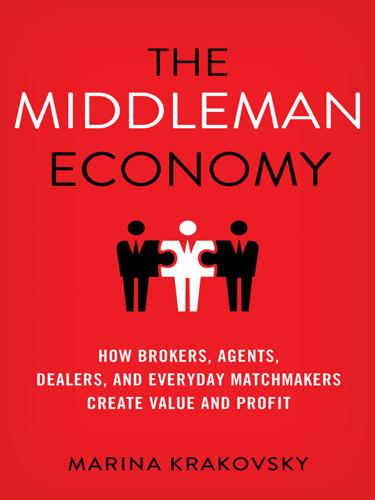
The Middleman Economy: How Brokers, Agents, Dealers, and Everyday Matchmakers Create Value and Profit
by
Marina Krakovsky
Published 14 Sep 2015
One reason Facebook overtook MySpace in popularity, for example, was the way Facebook enforced a certain degree of quality control over its users: whereas MySpace allowed people to join anonymously (or to sign up under multiple fake identities), Facebook forced its users to sign up under their real names and addresses, creating the kind of accountability and trust that ultimately made it a more attractive gathering place. Advocates of privacy and Internet freedom have at times balked at Facebook’s real-names policy, but most people were “willing to trade their privacy for the privileges of joining a network based on trust,” as the journalist Julia Angwin has written.11 Other middleman businesses—think of Airbnb—have learned that it’s in their best interest to set and enforce policies for good behavior because these ultimately attract better participants on both sides.

Other Pandemic: How QAnon Contaminated the World
by
James Ball
Published 19 Jul 2023
This affects an online community in a lot of ways. Clearly, it gives people leave to post things they might not post if they had to put their real name next to them. Online anonymity is commonly cited as a driver of abuse, though there is no shortage of racist, sexist and homophobic speech on Facebook, which has had a real-name policy since its inception. But other effects are more interesting. When you can’t be identified as a longstanding member of a group by virtue of your name or online handle, the community needs to create an in-group and out-group in other ways – and one of these is to generate online slang, which becomes immediately identifiable to people in the group while being impenetrable to outsiders.
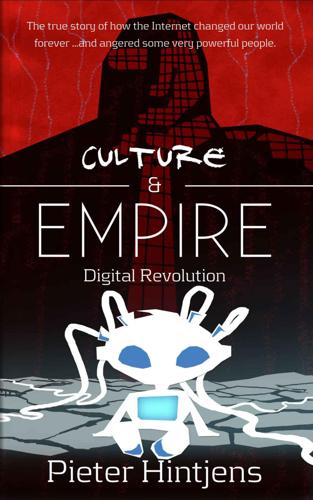
Culture & Empire: Digital Revolution
by
Pieter Hintjens
Published 11 Mar 2013
Here is how I think this game will play out: As whistle blowers leak information about illegal spying by the alphabet agencies, we'll see denials by business and promises by governments to roll back such activities or limit them to extreme cases. Those denials and promises will be empty. In order to build more accurate on-line profiles, we'll see "real name" policies by websites and legislation by countries that make it illegal to use aliases in on-line communities or communicate anonymously. We'll see various forms of attack on anonymous communities, covering the gamut of negative media reports, planting illicit material, claims of infiltration by security agents, and so on.

This Machine Kills Secrets: Julian Assange, the Cypherpunks, and Their Fight to Empower Whistleblowers
by
Andy Greenberg
Published 12 Sep 2012
In mid-January 2011, HBGary Federal’s Aaron Barr set about trying to deanonymize Anonymous. With a software developer at the security firm named Mark Trynor, Barr had built a tool designed to scrape users’ social networking pages and aggregate the data for analysis. Facebook enforces a “real name policy”: No pseudonyms allowed. That meant if Barr could map Anons’ Facebook identities to the ones used in the group’s IRC instant messaging forums, he could pin down their real-world identities. “One of the goals is to tie as many of the IRC nicks to FB profiles as possible,” he wrote in a report on his research.